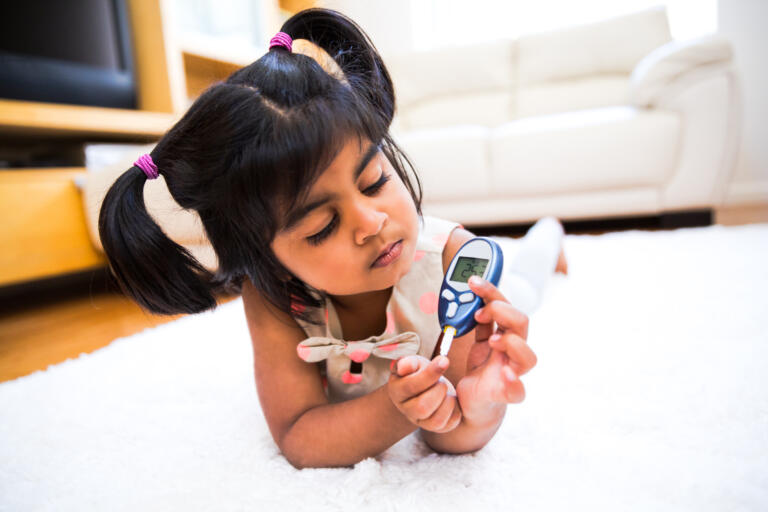
Newly Diagnosed
Just diagnosed with type 1 diabetes? We have the information you need to understand the condition and live a healthy life.

Type 1 diabetes (T1D) is a chronic autoimmune disease. This means that it doesn’t go away. Anyone can be diagnosed with type 1 diabetes at any age, though it usually is diagnosed in childhood or adolescence.
In T1D, the body’s immune system attacks the insulin-producing cells in the pancreas. Insulin is an essential hormone that helps the body turn food into energy. People living with type 1 diabetes must take insulin by injection or insulin pump to survive.
Living with T1D requires extra work, but with the right support and information, you or your loved one can lead a full and healthy life.
The most common warning signs of type 1 diabetes (T1D) are:
The onset of symptoms can be sudden, especially in very young children. If you or someone you know is experiencing any of these symptoms, contact your medical provider immediately.
Statistics on T1D around the globe
The science behind T1D
Recognize the early warning signs of T1D
Onset triggers associated with T1D
Tests and other factors that lead to a T1D diagnosis
Therapies for treating type 1 diabetes
Types of insulin and administration methods
Get the facts about living with T1D
Providing the most accurate and comprehensive global picture of T1D in history
We’re all here because we’ve all been there.

Just diagnosed with type 1 diabetes? We have the information you need to understand the condition and live a healthy life.

Learn about the tools, therapies, and technologies available to manage T1D.

Connect with people from all over the world who are managing T1D in their own way. Find your local chapter, attend an event, or join an online community summit.
Type 1 diabetes develops in stages over time. Detecting T1D in its early stages can prevent life-threatening complications. You may also be eligible for research studies to advance treatments and cures or FDA-approved therapies that delay the onset of T1D.